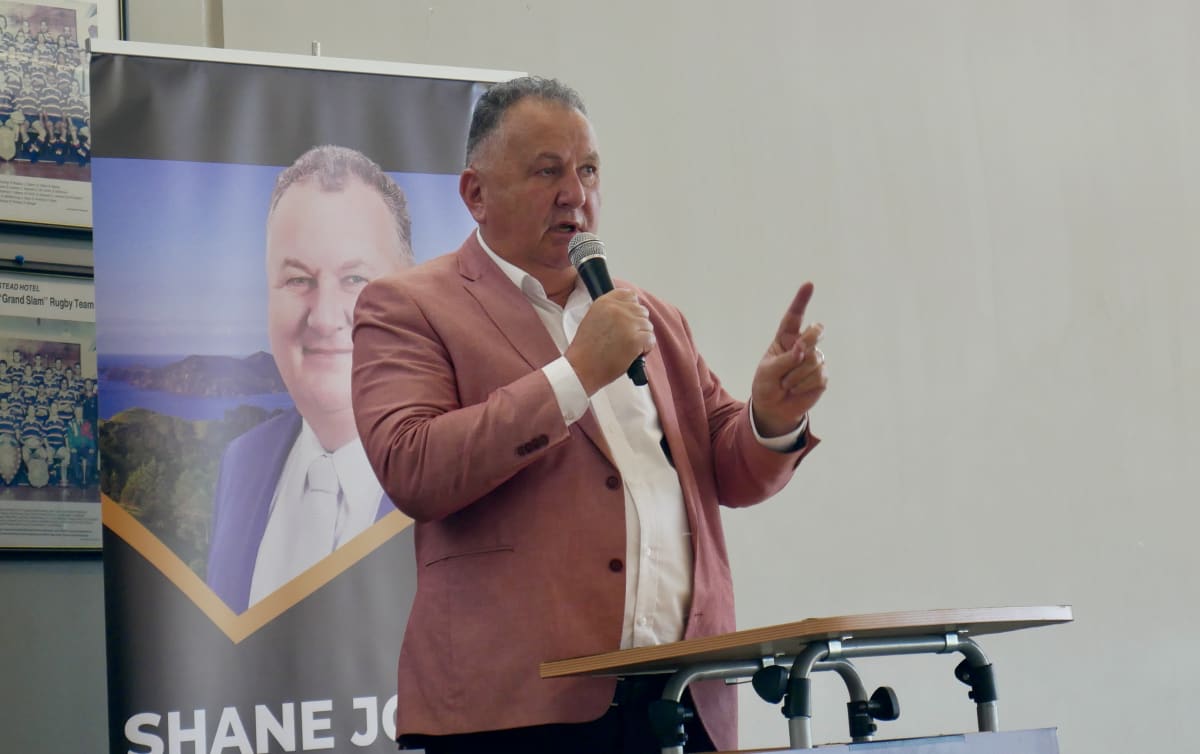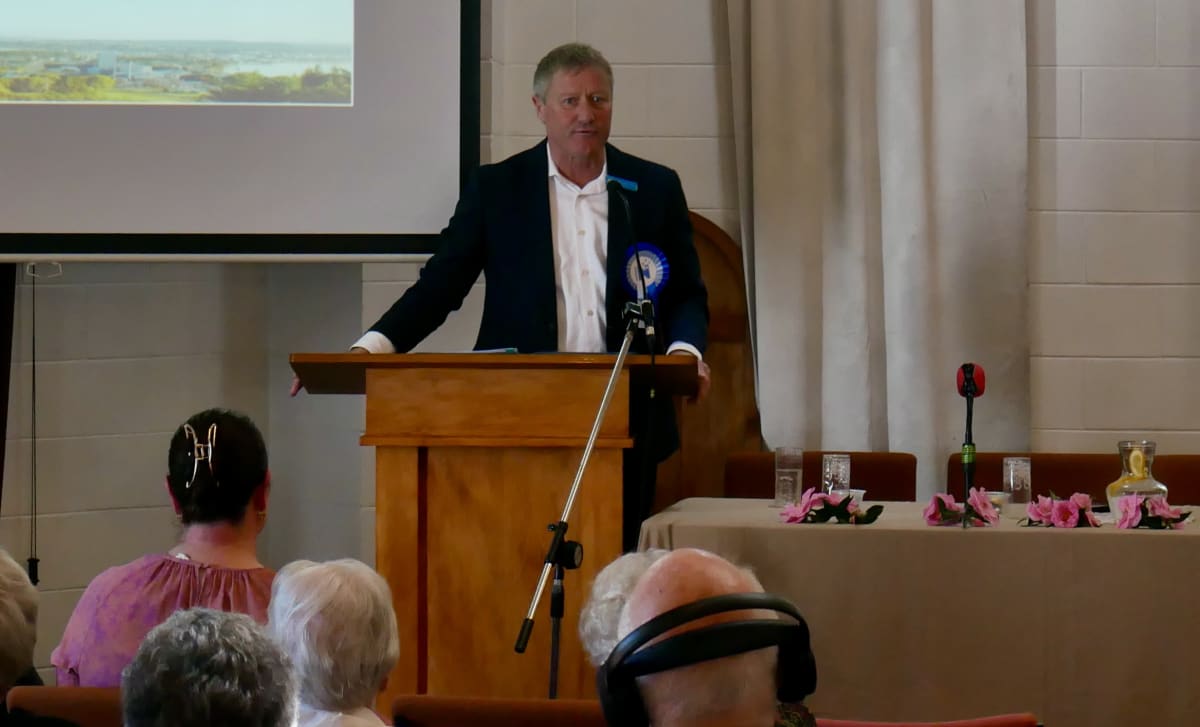
After a historic win by Willow-Jean Prime in 2020, can Labour hold onto Northland or are things about to go south for them?
October 17, 2020 was a red letter day for Northland – for the first time in the electorate’s existence, it elected an electoral MP from the Labour Party.
But even among the red wave of 2020, Willow-Jean Prime’s ascendancy came by a hair’s breadth. She received just 163 more votes than runner-up Matt King from National.
READ MORE:
* National and Labour eye up Auckland Central
* Win some, lose some in Epsom
Aside from the two years between 2015 and 2017 when Winston Peters held the seat for New Zealand First, the Northland electorate has been one of the safest bets for National.
That was true even before its formation in 1996, with former electorates in the same area having been National’s since the Second World War.
But after three tough years for Northland, with climate events putting transport resilience to the test and lockdowns temporarily isolating the region, will Labour be able to cling onto this hard-won seat?
It’s not going to be easy. The race is crowded with contestants who all have one thing in common – they can score political points by leveraging the lack of appetite for Labour reflected in the polls.
It was a fact perhaps most accurately summed up by Willow-Jean Prime’s experience at a recent debate hosted by the Taxpayers' Union in Kerikeri.
Faced with a room of National, Act, New Zealand First and DemocracyNZ supporters, Prime was received poorly and had to soldier on through party talking points amid jeers and boos.
The red tide may have delivered a number of Labour candidates onto key provincial seats for the first time, but as it recedes some of them may well be stranded.
For Prime, it seems the challenge is cutting through the disaffection and emphasising Labour’s track record of delivery in the north.
“I stand here again seeking your support to not only be your MP for Northland, but to keep us in government so we can continue to get in here the much-needed investment in our region so that we can all have a thriving and prosperous future here,” she said.
She stressed fixes to Whangārei’s hospital, increases to police numbers and the fruits of the Provincial Growth Fund as examples of a steady hand on the rudder.
But the latter two are wins New Zealand First’s Shane Jones is claiming for his own party. After coming third in 2020, Jones is back on the campaign trail asking for both candidate and party votes.
Jones’ campaign for the seat uses his own force-of-nature style of public speaking and a few more modern tricks like a cover of Journey’s ‘Don’t Stop Believing’ promising to take the Far North “to the ceiling”.

He’s an eccentric and captivating speaker, peppering his delivery with references to himself in the third person and humour well-targeted at his mostly older crowd.
But he also uses that lovable oaf persona to soften the controversy a reactionary and populist party line could draw.
When asked about how to address impediments for young Māori and Pasifika to having a good life, he said a culture of not taking responsibility had taken root.
“Unless we rail against the spread of feral culture, that there’s a free hit and there’s no obligations, it’s all about your entitlements, then we are sinking the future prospects of the north, and I’m not prepared to have that happen.”
It’s the kind of loaded language that’ll get Jones a round of applause in a mostly white, relatively affluent meeting in Kerikeri, and he’s prepared to ride that all the way to the top if he can.
Along with tough-on-crime promises, Jones has had a gutsful of what he calls climate alarmism: “The New Zealand First Party is very, very opposed to this ongoing hysteria infecting our rangatahi … our young students believing their lives have no purpose because of the shrillness and the hysteria around climate change.”
He pointed to China’s emissions massively outweighing those of New Zealand and said we live in a “very distant part of the world”.
New Zealand First has been rising in the polls, but a number of right-leaning voters have a bone to pick with Jones and Peters. Namely, the question of why Peters chose Ardern over English in 2017.
It’s been a bit of an albatross around New Zealand First’s neck, as the wind is taken out of the sails of many a passionate argument critiquing the current government when the public points out that Winston was the so-called kingmaker at the time.
Jones has obviously thought this through – he took a moment to address the “elephant in the room” and run through the exact thinking at the time, saying Bill English had not been willing to support the New Zealand First manifesto.
“National refused to negotiate. They were more interested in offering baubles, more interested in offering trinkets,” he said.
He’ll only really know whether this justification is accepted by his potential voting base come election day.
Jones said the 200-odd people turnout at the Kerikeri Sports Complex on a sunny Sunday afternoon was heartening.
When speaking to Newsroom about his chances, however, he said giving a good competitive campaign was important to make sure National didn’t feel entitled to the seat. This, along with a plea to the audience to give New Zealand First a party vote even if he personally hasn’t won them over, suggests he’s hedging his bets.
The candidate who might be feeling the most comfortable is National’s Grant McCallum.
McCallum is a beef and dairy farmer from Maungaturoto, who is replacing former National MP Matt King.
History is on his side, with years and years of blue votes behind him. (“A goat, a donkey, a blue hat: Northland votes for that person,” Shane Jones said.)
But past performance doesn’t always indicate future results, and McCallum isn’t sitting idly by and waiting for the seat to be his.
He said he’d already hit 27,000km on his odometer travelling across the electorate since March.

McCallum, like many of the candidates, said roading was the first issue people tended to bring up when he was door-knocking.
“Roads are first, second and third priority in Northland,” he said. “It’s not only potholes but accessibility and just the general state of the roads … Whether it’s the Dome Valley, Brynderwyns and Mangamukas … people are over it, they are sick of the fact that we've got such shit roads."
Slips cutting off important roading links through the Mangamuka Gorge and the Brynderwyns have recently highlighted the vulnerabilities of transport in Northland. In the battle for this seat, it seems roading policy is going to make a big difference.
McCallum chairs the board of the Kauri Museum at Matakohe, and he said he’s had first-hand experience of how lockdowns and roading issues have made life tough for tourism operators north of Auckland.
The revival of National’s roads of national significance programme should sweeten his offering for Northlanders. National has promised work on the road between Whangārei and Port Mardsen and the Warkworth to Wellsford.
Labour’s transport policy has also focused in on Northlanders’ roading concerns. Investment in the road between Warkworth and Whangārei is one of the 14 announced transport projects Labour would deliver in the next 10 years.
Prime will be breathing a sigh of relief that Northland features prominently on the list – it’s a worthy retort to National’s own significant upgrade plans for SH1.
McCallum is new to the race, replacing former National Matt King. But that doesn’t mean King is out of the race. The former police officer and farmer is vying for candidate vote and party vote as the party leader of DemocracyNZ.
After King was ousted from parliament by Prime’s 163 vote lead, he disappeared from public view for a little while.
Then at the beginning of 2022 he appeared as a leader in the parliamentary protests. His new political platform gathered from there, focusing on a party line of opposing vaccine mandates, deprioritising climate regulation and reducing overseas influence in New Zealand.
The party has been slapped with conspiracy theorist accusation since its inception, but King has come out strongly against such characterisations.
At the Taxpayers' Union debate in Kerikeri he was critical of moderator Martin Bradbury using the word conspiracy: “You’re trying to drive an agenda, you’re doing typically what media do.”

King made it clear that protection of the Bill of Rights would have to be paramount in any government he’d be part of. That would mean repealing legislation imposing restrictive pandemic measures as well as hate speech laws.
Whether the conspiracy label is accurate or not, DemocracyNZ’s policy packet is similar in many ways to that of New Zealand First: tough-on-crime, foot off the pedal of climate action, against co-governance.
King came very close to keeping his seat in 2020, and this October he’ll find out whether it was him Northlanders were voting for, or just the blue hat.
Other candidates include dairy farmer Mark Cameron for Act. His place at seventh on the list means if Act fares well on the party vote front, he may well have a job down in Wellington even if he doesn’t take Northland.
Cameron’s approach has been to appeal to the farmers – emphasising Act’s promises to cut red tape and regulations for the agricultural sector.
Tai Tokerau community leader Reina Tuai Penney is meanwhile running for the Greens, with a focus on access to Māori medium education, social procurement, housing and infrastructure.
It’s a list of candidates that represents the sometimes contradictory political landscape of the north. On the one hand there’s the agricultural heritage, the traditional views, and unchecked capital. On the other there’s the high Māori population, the socioeconomic disadvantage, the rural isolation.
If there are indeed roughly two halves to this voter base – it’s safe to say whoever comes out on top will be determined by which half comes out in force on that quickly upcoming Saturday in October.







